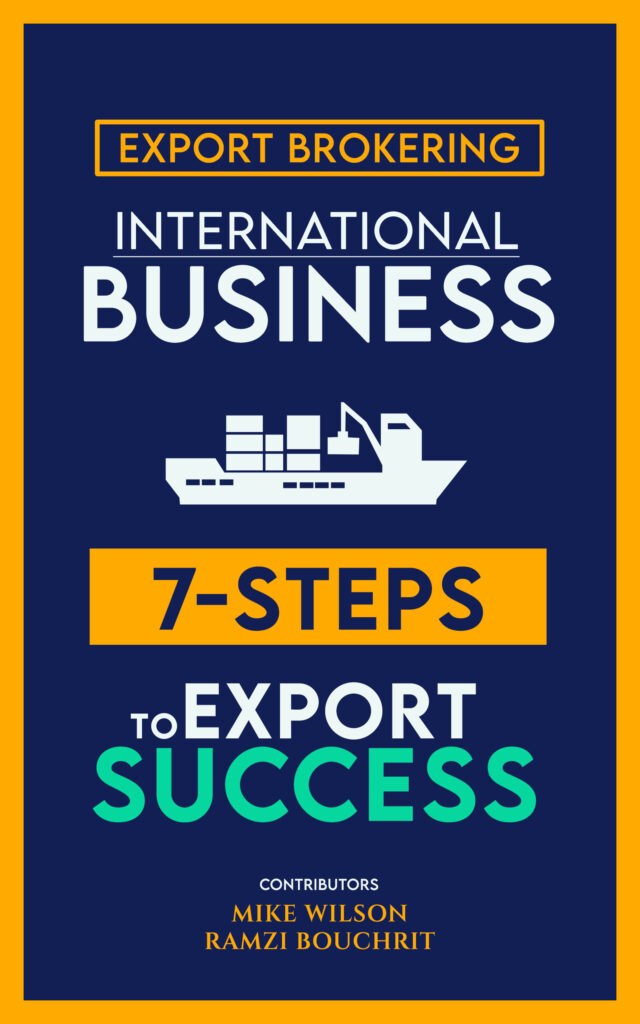In the complex world of international trade, ensuring compliance with regulations and laws is crucial for trade brokers. Compliance not only helps maintain the integrity of the global trade system but also protects brokers and their clients from potential legal and financial risks. This article will explore the best practices that trade brokers can implement to ensure compliance in their operations.
In this step of “The Export Series” we will show you how to become a successful Import Export (International Trade) broker.

Mr. Ramzi Bouchrit (RB JV Group) has provided us with helpful information based on the different transactions he made with his business partners in the field of the International Trade aka import export. “The Export Series”.
1. Understand Applicable Laws and Regulations
The first step in ensuring compliance is to have a comprehensive understanding of the laws and regulations governing international trade. Trade brokers must be familiar with import and export regulations, customs requirements, sanctions programs, and any industry-specific regulations that may apply. Staying updated on changes and developments in these areas is essential for compliance.
2. Establish Robust Internal Compliance Policies
Trade brokers should develop and implement internal compliance policies tailored to their specific business operations. These policies should cover areas such as due diligence, risk assessment, record-keeping, and reporting obligations. By establishing clear guidelines and procedures, brokers can ensure consistency and accountability in their compliance efforts.
3. Conduct Thorough Due Diligence
Prior to engaging in any international trade transactions, trade brokers must conduct thorough due diligence on their clients, suppliers, and partners. This includes verifying the legitimacy and reputation of the entities involved, assessing their compliance track record, and identifying any red flags or potential risks. Diligent due diligence helps brokers mitigate the risk of engaging with non-compliant or sanctioned entities.
4. Implement Strong Internal Controls
Trade brokers should implement strong internal controls to monitor and manage compliance risks. This may include segregation of duties, regular internal audits, and effective oversight mechanisms. By establishing checks and balances within their organizations, brokers can identify and address compliance issues proactively.
5. Provide Regular Training and Awareness Programs
Continuous training and awareness programs are essential for maintaining a culture of compliance within trade brokerage firms. Brokers should educate their employees on compliance requirements, best practices, and potential risks. By promoting a culture of compliance, brokers can ensure that their staff remains vigilant and knowledgeable about their compliance obligations.
6. Engage External Compliance Experts
In complex cases or when dealing with unfamiliar jurisdictions, trade brokers may benefit from engaging external compliance experts. These experts can provide specialized knowledge and advice on specific compliance issues, such as export controls or anti-money laundering regulations. Seeking external expertise can enhance brokers’ ability to navigate complex compliance challenges.
Conclusion
Ensuring compliance in international trade brokerage is a critical aspect of operating successfully and responsibly in the global marketplace. By understanding applicable laws and regulations, establishing robust internal policies and controls, conducting thorough due diligence, providing regular training, and engaging external compliance experts when needed, trade brokers can mitigate risks and maintain a strong compliance framework.
FAQs (Frequently Asked Questions)
1. What are the key benefits of ensuring compliance in international trade brokerage?
Ensuring compliance in international trade brokerage offers several benefits, including minimizing legal and financial risks, protecting the reputation of the brokerage firm, enhancing trust with clients and partners, and maintaining access to global markets.
2. How can trade brokers stay updated on evolving compliance regulations?
Trade brokers can stay updated on evolving compliance regulations by subscribing to relevant industry newsletters and publications, attending trade seminars and conferences, participating in professional networks, and regularly consulting with legal and compliance experts.
3. What are some common compliance risks faced by trade brokers?
Common compliance risks
faced by trade brokers include violations of export control laws, engaging with sanctioned or restricted entities, failure to comply with customs regulations, and non-compliance with anti-money laundering and anti-bribery laws.
4. What are the consequences of non-compliance in international trade brokerage?
Non-compliance in international trade brokerage can result in severe consequences, including legal penalties, fines, loss of business licenses, reputational damage, and restricted access to global markets.
5. How can trade brokers ensure compliance with sanctions programs?
To ensure compliance with sanctions programs, trade brokers should implement comprehensive screening processes, conduct thorough due diligence on clients and partners, maintain updated sanctions lists, and establish effective internal controls to prevent engagement with sanctioned entities.
Remember to seek legal advice and consult with compliance professionals for specific compliance requirements in your jurisdiction and industry sector.
 How To Info How to info
How To Info How to info